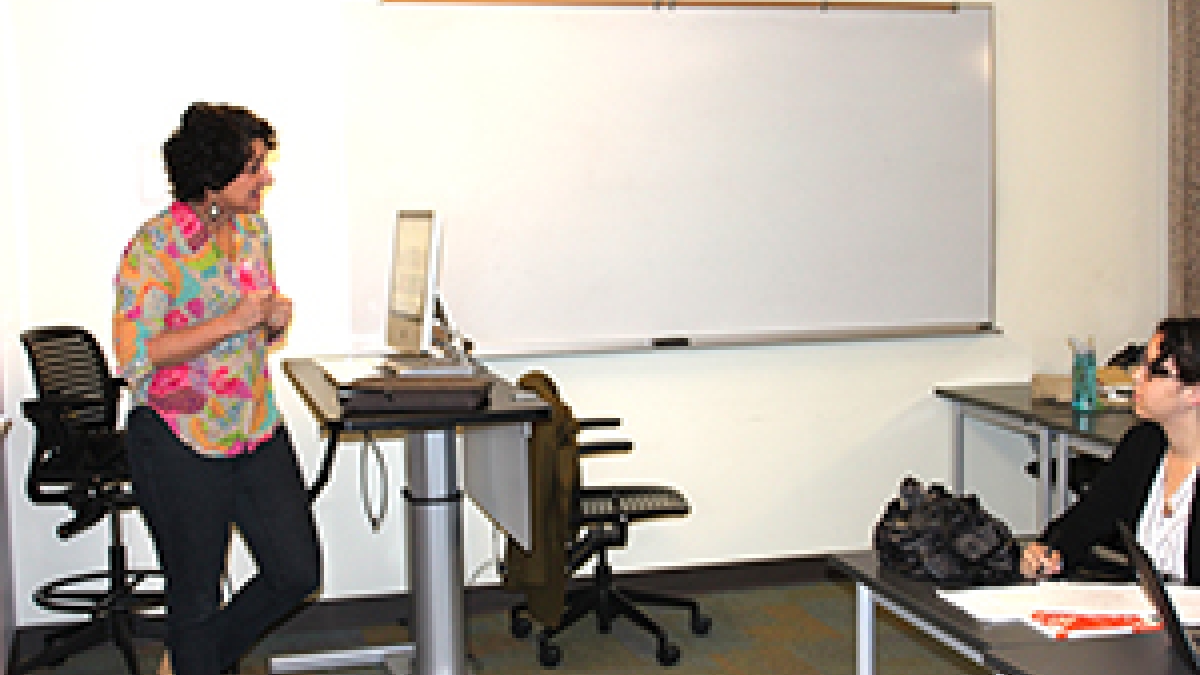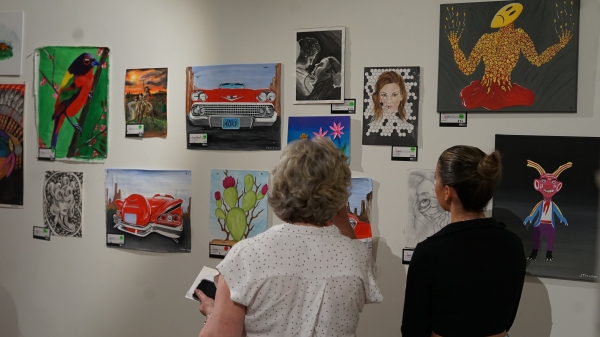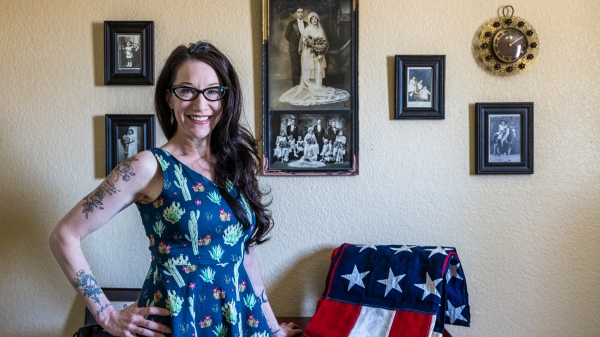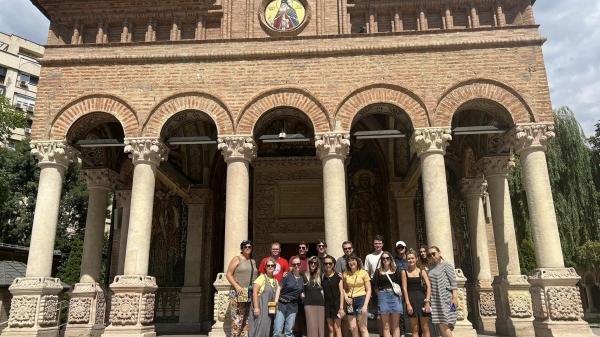Chicago artist leads annual public history short course at ASU

Rebecca Keller teaching the public history short course.
Rebecca Keller, professor at the School of Art Institute of Chicago, is teaching the annual public history short course at Arizona State University.
The short course is a distinctive component of the public history program at ASU. Every year, students have the opportunity to learn directly from a scholar making a mark in public history. Keller is author of “Excavating History: Artists Take on Historic Sites.”
Mark Tebeau, director of public history at ASU says of Keller, “She is an artist rethinking the history exhibit, excavating it from the bowels of the standard museum experience for the visitor. It is history from the perspective of an artist.”
“As an artist, I am interested in historical research as an engine for art making," says Keller. "The result is not only interesting museum exhibits, but compelling art."
One example is the work she did as part of the Portland Art Museum’s “Object Stories” project. The exhibit included an interactive component in which visitors recorded themselves showing a personal item and describing its value, much like a curator would describe the value of a museum piece. Keller contributed by creating videos that personified objects and gave them a voice.
One of these featured a Native American spoon in conversation with an ancient Chinese jar. “The dialogue cuts through the culturally determined concept of beauty,” she explains. “This exhibit blurs the boundaries of art and history, of museum pieces and those of ordinary use.”
Keller will further leave her mark in Arizona, as she will also meet with stakeholders in professor Paul Hirt’s National Endowment for the Humanities grant project, “Nature, History and Culture at the Nation’s Edge.” Students in the short course will not only learn from Keller’s expertise, but will also collaborate to propose exhibit ideas for this project.
One of the students participating in the short course is Samantha Thompson, a doctoral candidate for history and the philosophy of science in the Center for Biology and Society in the School of Life Sciences. She is also curator of the Lowell Observatory in Flagstaff.
Thompson took this course because she “wanted to get more exhibit design work. I am not involved with the public history program," she explains, "but the more I talk to Mark [Tebeau, director], the more I would like to be involved.
“It has been incredibly helpful to receive Rebecca Keller’s perspective, coming at it from an artistic point of view," adds Thompson. "It forces us to look beyond text and panels on walls. This will definitely help in the day-to-day projects that I am working on. Now, everything I think about, I think about in exhibit form. Even for papers that I have to write, I think, ‘How would I present this to the general public?’"
The public history program at ASU is one of the oldest and largest in the country. Founded in 1980, it trains students to put history to work, and develops public history methodologies of the future.
More Arts, humanities and education

Student whose father experienced incarceration earns first-ever Center for Correctional Solutions Scholarship
A tradition since 2017, with a few years’ hiatus during the COVID-19 pandemic, the {INK}arcerated Prison Art Show has raised more…

Giving poetic license to vets
When Rosemarie Dombrowski took over as editor of a new academic military journal, it seemed like a mismatch at first. Dombrowski…

ASU Romanian program celebrates 25 years and international success
The Romanian program at Arizona State University’s School of International Letters and Cultures has plenty to boast about. It is…